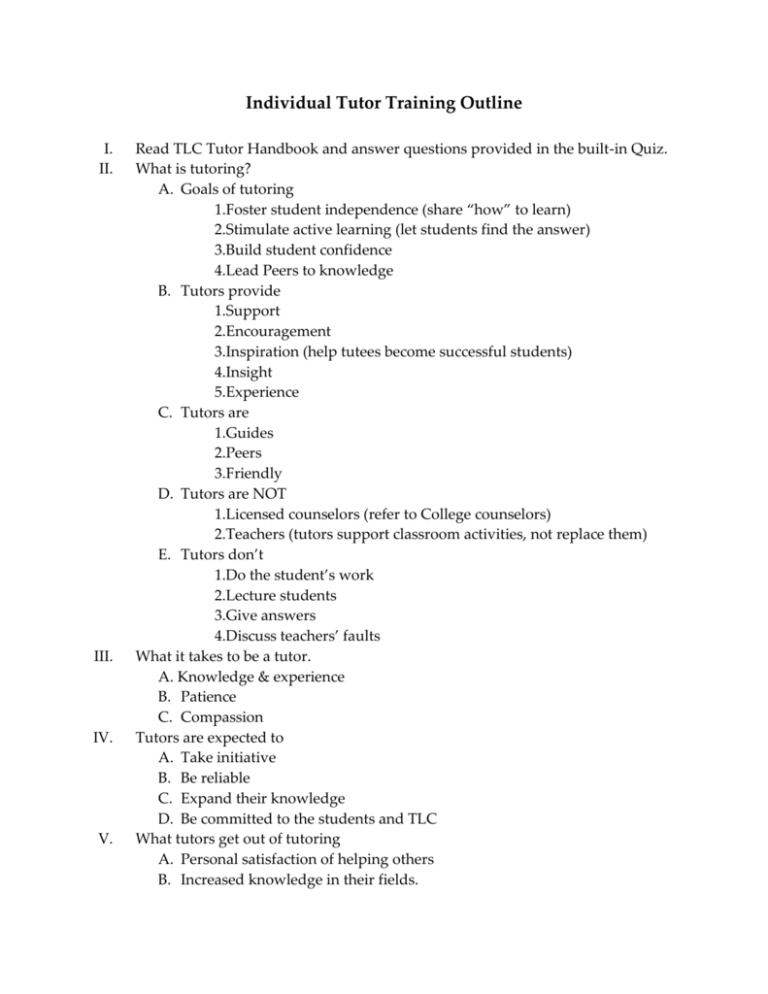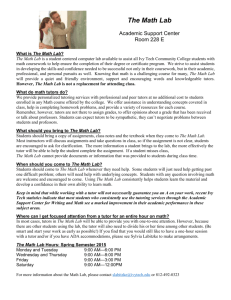Individual Tutor Training Online
advertisement

Individual Tutor Training Outline I. II. III. IV. V. Read TLC Tutor Handbook and answer questions provided in the built-in Quiz. What is tutoring? A. Goals of tutoring 1.Foster student independence (share “how” to learn) 2.Stimulate active learning (let students find the answer) 3.Build student confidence 4.Lead Peers to knowledge B. Tutors provide 1.Support 2.Encouragement 3.Inspiration (help tutees become successful students) 4.Insight 5.Experience C. Tutors are 1.Guides 2.Peers 3.Friendly D. Tutors are NOT 1.Licensed counselors (refer to College counselors) 2.Teachers (tutors support classroom activities, not replace them) E. Tutors don’t 1.Do the student’s work 2.Lecture students 3.Give answers 4.Discuss teachers’ faults What it takes to be a tutor. A. Knowledge & experience B. Patience C. Compassion Tutors are expected to A. Take initiative B. Be reliable C. Expand their knowledge D. Be committed to the students and TLC What tutors get out of tutoring A. Personal satisfaction of helping others B. Increased knowledge in their fields. VI. VII. Tutors need to A. Know what resources are available 1.The Master Tutor 2.The Tutor’s Guide (book and DVDs) 3.Becoming a Master Student 4.TLC Tutor Handbook (online) 5.Study Skills Online (see TLC website) 6.Numerous computer programs B. Know their limitations (i.e., writing instructors guidelines) C. Know requirements for CRLA D. Be aware of all TLC activities and be willing to help out 1.In other areas 2.Enforcing our policies 3.In other areas that student/teacher may need help or direction Some Problems to expect A. There are many styles of tutoring; don’t worry if yours and the tutee’s don’t match; sometimes the right personal chemistry just doesn’t mix. B. Last minute freak outs C. Students with problems bigger than academics D. Students who can’t understand why what they’ve done is not acceptable to the instructor. E. Students who won’t take responsibility for their education.




